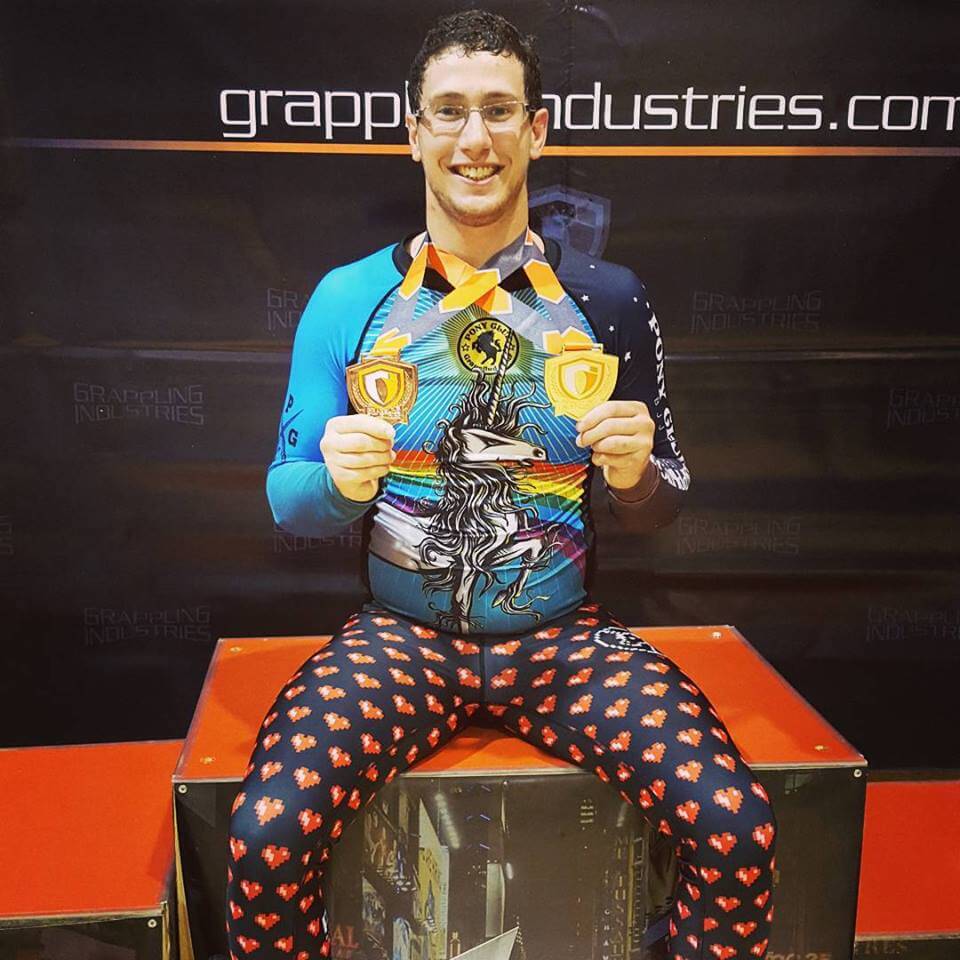Continued from Competition Mindset Part 2: For Best Results Be Prepared
In my time competing I’ve collected several dozens of gold medals, I’ve won the IBJJF No Gi Pans twice and I’ve secured a Fight To Win Pro title, I’m not the best competitor in the world by any far stretch of the imagination but I know what it takes to win and to do so consistently. There are some habits that I have developed that might be useful to you. Of course anything I write here is simply my opinion and my experience, it might not work for you, and there are plenty of individuals who eschew everything I write here who are also more accomplished competitors.
Here are 5 habits that I’ve developed that I feel have helped me achieve results.
- Train. Train on good days. Train on bad days. Train when the weather is crappy. Train when the weather is gorgeous. Many people don’t realize that the more you train the better you’ll become at whatever you are doing, and it’s dumb. If you’re not training, you should train your mind, watch footage, do solo exercises, read about the sport. Doing small things can in an aggregate form contribute to your success. Train the way you plan on competing, Drill. Roll. It’s silly that I have to write this, it should be a no brainer, but winners obsess about winning. Make training a priority
- Set reasonable, attainable goals, and then crush them. I’ve written at length about goal setting. The bottom line is most people set goals that are too lofty and then when they fail to reach them are weakened mentally. Instead, set halfway goals. Let’s say I want to hit an armbar in my next competition, instead of setting that as my goal, I’ll set a goal to drill my armbar 20 times per training session for a month. Then once I’ve done that, I’ll set a goal to armbar each training partner of equal or lower rank once per session, etc. The goal of accomplishing something in competition is out of your control, keep your goals focused on things that you control.
- Learn to be coachable. Being coachable beats being talented when other things are equal. Your coach knows a lot more than you. If you’re coachable you functionally become an extension of your coach on the competition mat. If you’re a blue belt level grappler and you are very coachable, and your coach is a black belt, when you are coached you become closer to a black belt level grappler.
- Seek out challenges. This can mean different things to different people. As a competitor it wasn’t until I started competing against people a step above my level as a grappler that I really started to grow. When you lose to someone of similar skill levels to you, very often the lessons learned are less actionable than when it’s someone a level above, this is because someone a level above yours will have a better propensity for finding your weaknesses and exploiting them. Similarly, the confidence gained from defeating an opponent of a higher level is greater and will reinforce good habits. At the gym if you are able to find people that can submit you you will be at a competitive advantage because those people will expose your weaknesses day in and day out, if the talent pool at your disposal is smaller, consider creating artificial challenges to build your skill set (for example start in submissions.) The more you seek out challenges the faster you will progress.
- Make competition a priority. Like item number 1 this is the most important item on this list. By far. Very often I show up at competitions and am one of 2 or 3 people in a bracket in spite of other people of similar rank/skill and size being present. These people may never become good competitors. Competition isn’t for everyone, but if you fancy yourself a competitor you need to compete as often as you can. It’s the only way to develop acclimation to the competition environment, it’s the only way to develop your own game style, and it’s the only way to become a competitor, because remember no everyone who competes is a competitor…
These are 5 habits that I’ve found to be critical to being a successful competitor. These habits have put me on top of the podium twice at the IBJJF no gi pans, as well as at dozens of other competitions. What are some habits that have helped you?

Emil Fischer is a Jiu-jitsu Black Belt and BJJ competitor training under Pablo Angel Castro III at Strong Style MMA in Cleveland Ohio. An avid writer and competitor, Emil has amassed an extensive competition record. Most notably, Emil is a 2 time gold medalist at the IBJJF No Gi Pans, and has a submission victory record of 5-1 at Fight To Win Pro which includes purple belt no-gi light heavyweight championship
Emil’s sponsors are Impact Mouthguards, Cleveland Cryo, The Terphouse, Meerkatsu, Eddys on Coventry and Nottarookie. He is a Ludwig Van and Vanguard Kimono brand ambassador.

